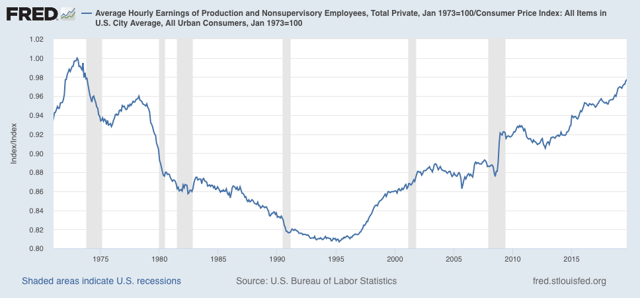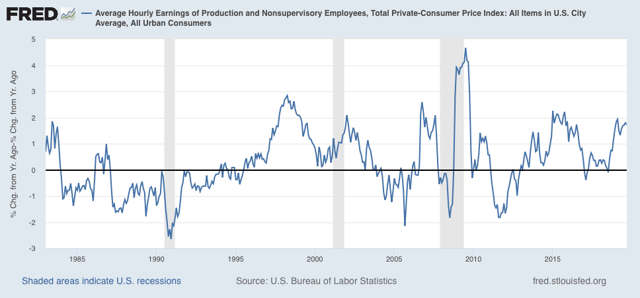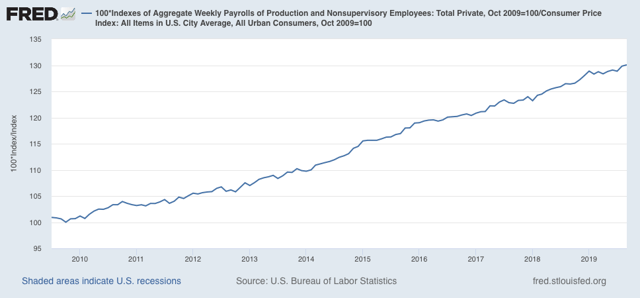Real average and aggregate wages for September Now that we have the September inflation reading, let’s take a look at real wage growth. First of all, nominal average hourly wages in September increased +0.2%, while consumer prices were unchanged. As a result, after rounding, real average hourly wages for non-managerial personnel increased +0.1%. This translates into real wages of 97.7% of their all time high in January 1973: On a YoY basis, real average wages were up +1.7%, still below their recent peak growth of 1.9% YoY in February: Aggregate hours and payrolls improved sharply in the past several months, so real aggregate wages – the total amount of real pay taken home by the middle and working classes – are up 30% from their October
Topics:
NewDealdemocrat considers the following as important: US/Global Economics
This could be interesting, too:
Joel Eissenberg writes How Tesla makes money
Angry Bear writes True pricing: effects on competition
Angry Bear writes The paradox of economic competition
Angry Bear writes USMAC Exempts Certain Items Coming out of Mexico and Canada
Real average and aggregate wages for September
Now that we have the September inflation reading, let’s take a look at real wage growth.
First of all, nominal average hourly wages in September increased +0.2%, while consumer prices were unchanged. As a result, after rounding, real average hourly wages for non-managerial personnel increased +0.1%. This translates into real wages of 97.7% of their all time high in January 1973:

On a YoY basis, real average wages were up +1.7%, still below their recent peak growth of 1.9% YoY in February:

Aggregate hours and payrolls improved sharply in the past several months, so real aggregate wages – the total amount of real pay taken home by the middle and working classes – are up 30% from their October 2009 trough at the beginning of this expansion:
For total wage growth, this expansion remains in third place, behind the 1960s and 1990s, among all post-World War 2 expansions; while the *pace* of wage growth has been the slowest except for the 2000s expansion.

